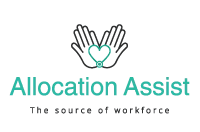[vc_row][vc_column]
-
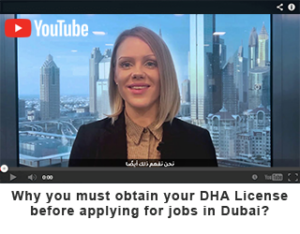
Why you must obtain your DHA License before applyi...
- BY Emilie
Why you must obtain your DHA License before applying for jobs in Dubai? Dubai has evolved into a leading medical tourism…
Read Articles -
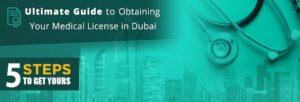
Ultimate Guide to Obtaining Your Medical Licence i...
- BY Emilie
Read Articles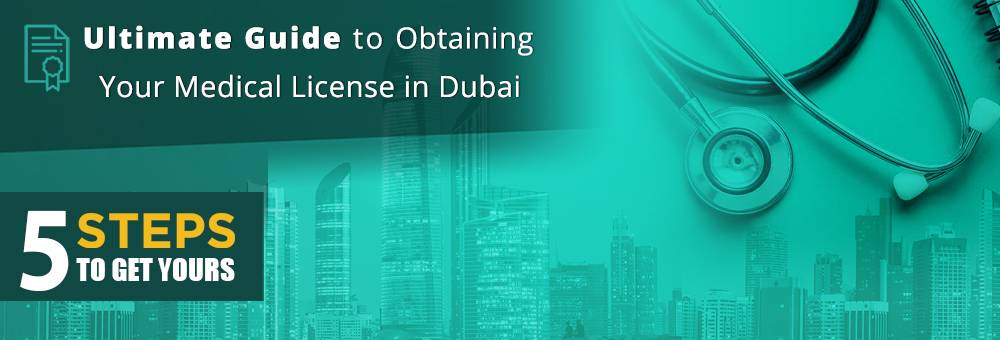
In the UAE, the licensing of medical professionals is regulated by different authorities according to which emirate you want to work in. In Dubai, the Dubai Health Authority (DHA) has authority over licensing in the Emirate of Dubai, except within the Dubai Healthcare City (DHCC) free zone.
Dubai recruits healthcare professionals from all over the world and therefore has a rigorous system in place for verifying their identity, qualifications, skills and experience before issuing a licence to practice.
For newcomers the process can seem daunting, but our experienced licensing team at Allocation Assist can help you navigate the process smoothly, saving you both time and stress.
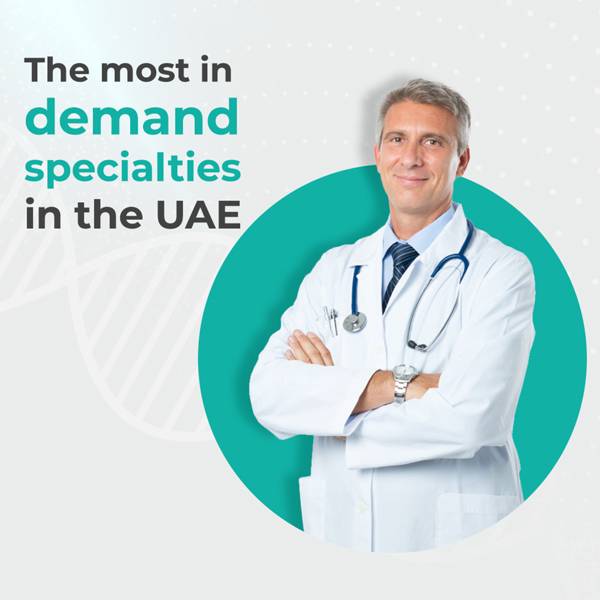
How long does it take to obtain a new licence?
First, it is necessary to obtain a registration with the Dubai Health Authority. This can be activated into a licence to practice by the health facility you wish to work for, once a job offer is secured.
The process for obtaining DHA registration takes on average 3-6 months, and may take up to 9-12 months for candidates with qualifications from countries whose training programmes are not recognised by the DHA and therefore are required to take additional examinations.
Why should I obtain DHA registration before securing a job?
The Dubai healthcare recruitment market is dynamic and competitive. Hospitals looking to fill vacancies as soon as possible prefer candidates who have already proved their eligibility to work in Dubai by obtaining their registration.
How long is registration valid for?
DHA registration is valid for one year, however it is easy and straightforward to renew.
Steps to obtaining your DHA registration
1. Initial Application
Applicants need to register on the DHA website before initiating the ‘New License’ process. Online forms must then be completed with comprehensive personal and professional details.
2. Uploading and validation of documents
The Unified Healthcare Professional Qualification Requirements (PQR) sets out the necessary requirements for licensure of healthcare professionals opting to practice in UAE in accordance with the federal laws and international best practices and standard.
Documents which must be uploaded with the application include:
● Educational certificates with transcript of records
● Professional qualification certificates
● Recent professional and employment experience
● For surgical specialties: log book for the last 2 years with hospital stamp(s) and signature of the Medical Director or other authorized person
● Valid license/registration from medical licensing body of country of recent employment
● Valid good standing certificate issued by your country’s licensing authority ● Medical fitness test (for applicants aged 65 and above)
● Valid Passport Copy
● Recent Photo
In order to protect public safety, the DHA rigorously verifies the validity of all documents. A fee is payable with the initial application for processing of documents, which usually takes about 2 weeks, or longer if additional documents are requested.
3. Primary Source Verification (PSV)
Primary Source Verification is the act of verifying documents, such as educational certificates, work experience, health license and good standing certificates, directly from the original or primary source. This is done by a specialized international company called ‘Dataflow’ and usually takes 6-8 weeks. This process comes under the “Sheryan”
section of the DHA website and verification starts 48hrs after the payment of the associated fee. Once completed, you will receive the positive Dataflow report which must be linked to the DHA application. It can also be used for other UAE emirates and many other Gulf countries, and the verifications never expire.
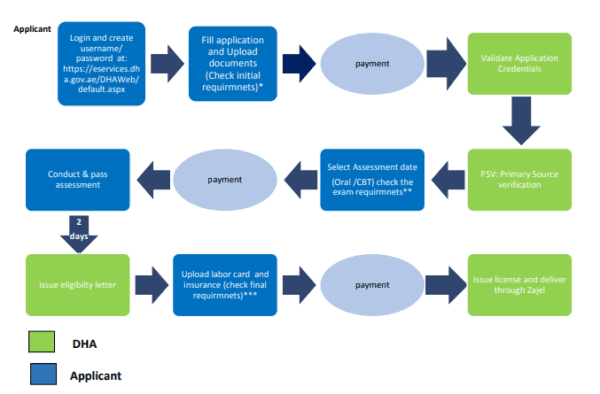
Infographic from: New Healthcare Professional License Process Map
4. Verification Examinations
Note: This step is not required for doctors who have completed their training in countries whose training programmes are recognised by the DHA including Australia, Ireland, New Zealand, USA, Canada, UK, Netherlands, France, Norway, Finland, Luxembourg, Belgium, Sweden and Germany.
Depending on the country where you completed your training, you may need to take either an oral examination or a prometric examination, which incur additional fees.
An oral examination must be taken in Dubai and involves a panel of senior consultants from your field asking scenario-based clinical questions, to assess an applicants’ knowledge and competency.
A prometric examination is a computer based test (CBT) on your chosen speciality, usually consisting of 100 questions, with a pass mark of 60%. It can be taken at many testing centres globally.
These tests may be booked while waiting for the primary source verification, however the time frame is based on specialist panel or prometric test centre availability.
Three attempts are allowed to pass either of these exams, otherwise the applicant must submit a brand new application before being allowed to take it again.
5. Registration request
Once the previous steps have been completed, an application for registration can be submitted. The DHA usually responds within 1-2 weeks, and may ask for additional information when required. Your registration document will then be issued, which you will be able to show to potential employers.
Once you have secured a job offer, you will need to submit additional documents and pay a fee to activate your licence. A licence will usually be issued in about two working days.
More information can be found on the DHA website
Why use Allocation Assist’s licensing service?
The licensing process is complex and exacting. Navigating it takes time, which busy doctors are short of. Allocation Assist’s in-house dedicated and experienced licensing team understands the process inside out, as this is what they do every day. They have successfully helped hundreds of doctors obtain their licence.
Benefits of using our licensing service:
- Our team are experienced in handling even the most complex cases
- We will guide you on the documents required and pre-check them to make sure they match the DHA requirements, avoiding time-consuming requests for further documentation which incur an extra fee
- Our team will create an application and upload all your documents
- We closely monitor your application and provide you with weekly status updates
- In case of any unforeseen delays or complications, we will update you immediately and work with you to resolve the issue
- Once the primary source verification is complete, we link the Dataflow report to your application
- We offer continuous support all the way through the process of registration, licensing and beyond
In addition, with our unique insights into Dubai’s healthcare recruitment market at Allocation Assist, we are able to:
- Connect you with hospitals in Dubai that match your profile and skill set
- Offer support with CV writing and contract/salary negotiations
- Guide you and your family through the relocation process
- Provide you with insights on living and working in Dubai
There is also the option to subscribe to Allocation Assist’s premium recruitment platform, through which you can highlight your skills and experience to our network of highly reputed hospitals.
Hear what some of our clients have to say:
“Great service. I couldn’t recommend any more highly. Totally new to the requirements of Dubai and Emilie efficiently dealt with any questions I had. She was an email or a phone call away at any time of the day. The process of getting the license was as easy as sending her the documents and nothing more. When there was a problem Emilie had found a solution and replied within 24 hours. Thank you to you and your team for all of your help getting started here in Dubai. If you need a license in Dubai use Emilie and Allocation Assist.”Dr. Michael McLaughlinConsultant Intensive/Anesthesiologist at American Hospital Dubai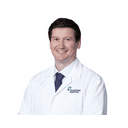 “If you need a highly dedicated professional, just choose Allocation Assist/ Emilie Davies. Emilie is based in Dubai and has excellent information about the market. The DHA licensing was done perfectly. From the beginning until the end she was always helpful and understanding.”Dr. KaplanConsultant Gynaecologist from the Netherlands
“If you need a highly dedicated professional, just choose Allocation Assist/ Emilie Davies. Emilie is based in Dubai and has excellent information about the market. The DHA licensing was done perfectly. From the beginning until the end she was always helpful and understanding.”Dr. KaplanConsultant Gynaecologist from the Netherlands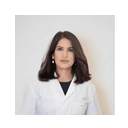 “I was under the impression that the DHA application process was likely to be complex and lengthy, but with Emilie's support that has not been my experience. She has guided me through the application, often communicating directly with the DHA on my behalf and keeping me informed of my progress on a regular basis. Her communication is excellent, always responding to my questions promptly. I have already recommended Emilie@allocationassist.com to some colleagues and believe that any doctor looking to move to the UAE should make use of her skills and knowledge.”Dr. Nick BennettConsultant Plastic Surgeon at Mediclinic Welcare Hospital Dubai
“I was under the impression that the DHA application process was likely to be complex and lengthy, but with Emilie's support that has not been my experience. She has guided me through the application, often communicating directly with the DHA on my behalf and keeping me informed of my progress on a regular basis. Her communication is excellent, always responding to my questions promptly. I have already recommended Emilie@allocationassist.com to some colleagues and believe that any doctor looking to move to the UAE should make use of her skills and knowledge.”Dr. Nick BennettConsultant Plastic Surgeon at Mediclinic Welcare Hospital Dubai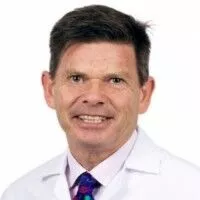 PreviousNext
PreviousNext -

Is Dubai the right place for you?
- BY Emilie
Read Articles
Are you a highly skilled doctor or other healthcare professional looking to expand your horizons?
Dubai is a vibrant, multicultural city. Opportunities exist for healthcare professionals with the right training, skills and experience to contribute to Dubai’s dynamic and growing healthcare sector.
Read on to find out what makes Dubai an exciting place to live and develop your career, and decide if you are ready for the challenges of working in Dubai’s competitive healthcare sector.

What are the advantages of living and working in Dubai?
- Increase your savings – with a tax-free salary!
Salaries are negotiable, based on your grade, qualifications and experience. Salaries are often considerably higher than a professional’s country of origin. However, the biggest bonus is that there is no income tax in the UAE, so your gross pay is your take home pay!
But there are other additional benefits:
-
-
- 30 days paid annual leave
- One month salary bonus for each year worked, paid at end of employment
- Mandatory employer-provided private medical insurance (may also cover your dependents depending on your contract)
- Medical indemnity and visa processing costs covered by your employer
- Inbound and outbound flights at the beginning and end of your employment
- Private hospitals often offer extra performance-based or revenue sharing incentives, on top of your basic salary
- Government hospitals do not offer performance based incentives, however they usually provide allowances for accommodation, children’s education, and annual flights to visit your home country
-
All of this means that you are able to save more every month for you and your family’s future.
- Enjoy a vibrant international culture
Dubai is a place where east meets west. Expatriate residents from around 200 different countries account for approximately 85% of the population. People are generally friendly, used to mixing with others from different cultures and welcoming to new arrivals. The incredible diversity also means that you get to experience a variety of food, culture, art and entertainment from both the local Arabic culture and from around the world.
Unlike many other cities in the Middle East, English is widely spoken and understood by most of the people who work and live in Dubai. Whilst it can be helpful to learn Arabic, expats who speak English will not encounter a language barrier.
- Take advantage of Dubai’s location as a travel and tourism hub
Dubai is a strategically located travel hub, easily accessible from different parts of the Middle East, Asia and Europe, and with good transit links to the rest of the world. Tourists are attracted by the many world-class entertainment and recreational facilities that the city offers. The city’s economy has seen a gradual shift from oil dependency towards tourism, hospitality and business.
The coming 6 months will be a great time to visit Dubai, as it is hosting the World Expo from 1st October 2021 to 31st March 2022. The theme of Expo 2020 Dubai is ‘Connecting Minds, Creating the Future’ and it is set to be a thrilling spectacle bringing the world together to create a better tomorrow.
- Live in one of the safest cities in the world
The crime rate is very low in Dubai. Both men and women can freely walk the streets, day or night, without the fear of being attacked or mugged. The United Arab Emirates has been ranked as the third safest country in the world, according to global database Numbeo’s safety index ratings.
- Be part of a growing and innovative medical sector
The well-regulated healthcare sector in Dubai is one of the most rapidly expanding in the region, with internationally accredited facilities and areas of medical excellence in a range of specialties. This remarkable growth has been led by the government’s vision to provide access to high quality medical services that are on par with international standards for all citizens and residents. There is continuing significant public and private investment into new facilities, high-tech medical applications, digital services, as well as medical education and research.
Dubai is also fast becoming a popular medical tourism destination for patients seeking high quality, accessible medical care. The Medical Tourism Index 2020-21 ranked Dubai in 6th place, and the top destination in the Middle East or Arab world.
- Enjoy security with the Golden Visa
In recognition of their dedication and contributions to the healthcare sector, especially during the Covid-19 pandemic, all doctors licensed by the UAE health regulatory bodies can now apply for the ‘‘Golden Visa’. The 10 year, easily renewable visa allows foreigners and their immediate family to work, live and study without needing an Emirati sponsor. This scheme, currently in operation until September 2022, is an added
incentive for doctors to remain in the Emirates long term by providing peace of mind and a sense of permanence.
- Discover a convenient and family-friendly lifestyle
Expats in Dubai soon become used to a convenient lifestyle, with great infrastructure and affordable help with housework or childcare. There is a wide range of accommodation available, with rents varying according to the area and location. Year-round sunshine is also a bonus and although it does get very hot in the summer months there is air-conditioning almost everywhere. If you are relocating with a young family, there are many excellent international schools, including a wide choice of British curriculum schools.
In 2020, CEOWORLD magazine ranked Dubai as the best city for expats to live and work in the Middle East, and fifth best city globally.
What are the challenges of working in Dubai’s healthcare sector?
- The Dubai healthcare market is dynamic and competitive
- Employers are seeking doctors with particular skills and experience, with certain specialties highly sought after
- It is highly advised to obtain your Dubai Health Authority (DHA) registration, to prove your eligibility to practice in Dubai, before applying for jobs
- DHA registration takes on average 3-6 months, and up to 9-12 months for candidates with qualifications from countries whose training programmes are not recognized by the DHA and therefore are required to take additional examinations
- As there are no set salary scales in Dubai, all the salaries are negotiated on an individual basis depending on your skillset, experience and qualifications
- It can take time for doctors to adapt to the culture and new systems
- In a competitive market, doctors need to be proactive in networking and marketing in order to build their referral network and increase their patient base.
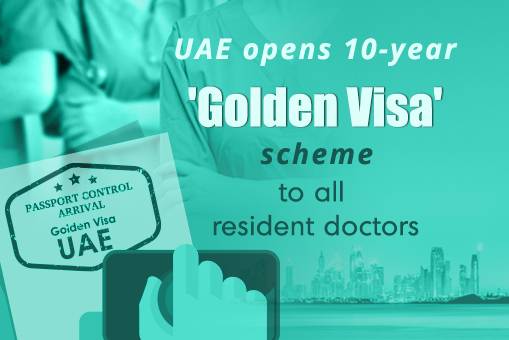
Is Dubai the right place for you?
Dubai is a fast-paced, highly competitive tourism & business hub and is not suited to everyone!
Dubai’s dynamic healthcare sector offers highly skilled and motivated doctors the chance to:
-
-
- Increase your savings – with a tax-free salary!
- Enjoy a vibrant international culture
- Take advantage of Dubai’s location as a travel and tourism hub
- Live in one of the safest cities in the world
- Be part of a growing and innovative medical sector
- Enjoy security with the Golden Visa
- Discover a convenient and family-friendly lifestyle.
-

Dubai is a fast-paced, highly competitive tourism & business hub and is not suited to everyone!
To find out more about working in this dynamic and growing healthcare sector, contact Allocation Assist
-

Growth of Dubai’s Healthcare System
- BY Emilie
Read Articles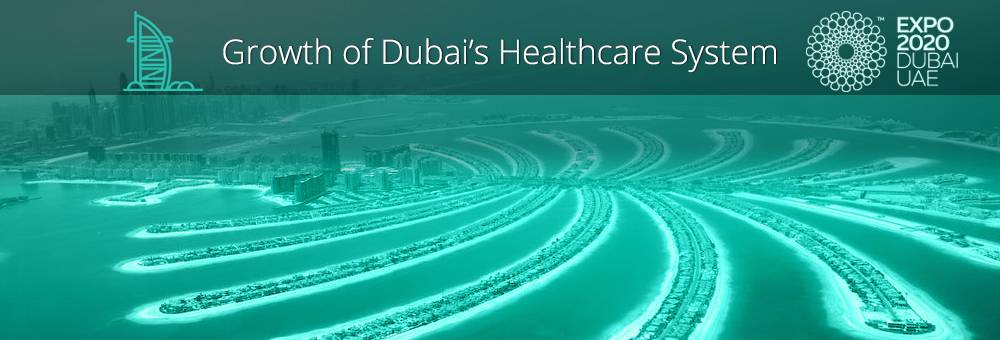
The healthcare sector in Dubai is one of the most rapidly expanding in the region. In recent decades there have been strategic investments in both the public and private sectors, as well as public-private partnerships. This article will consider the factors driving the growth and the outlook for the coming years.
Establishing a World-Class Health System
The remarkable development in Dubai’s healthcare system has been led by the government’s vision to provide access to high quality medical services that are on par with international standards for all citizens and residents. Medical insurance is compulsory for all residents, with employers mandated to provide cover for their employees.
The Dubai Clinical Services Capacity Plan (DCSCP) periodically studies demand and supply within both government and private sectors to identify existing and future gaps to enable evidence-based planning and policy. In 2015, a 10-year Dubai Clinical Services Capacity Plan included building three new medical colleges and five nursing schools, as well as strategies to attract and retain high-caliber medical and healthcare staff to fill gaps in certain healthcare specialties.
The UAE government has invested heavily in healthcare. In 2019, approximately 69% of the country’s total healthcare expenditure of USD 16 billion was government-funded. However, growing private-sector investment will outpace government spending, as private sector provision of healthcare in the U.A.E. is expanding.
Expansion in the Public Sector
In line with Dubai Health Authority’s strategic planning, expansion projects, either planned or completed, at government hospitals include:
● Expansion of Dubai Hospital to include specialised outpatient clinics, lecture halls and workshops.
● Increased capacity at Latifa Women’s Hospital with a new delivery suite.
● New skin bank for burn victims as part of a two-year expansion at Rashid Hospital.
● A new oncology hospital and research center in Dubai.Expansion in the Private Sector
A 12 new private hospitals recently opened in Dubai, taking the total to 38 in 2020.
Existing providers are also undergoing expansion.
● Fakeeh University Hospital is a new world-class academic center in Dubai committed to excellence through research, education, and clinical care.
● King’s College Hospital (KCH) recently opened two facilities in Dubai. Their new hospital in Dubai Hills works in direct collaboration with KCH’s specialist services in London.
● Mediclinic Middle East is undergoing expansions and upgrades, including the new Mediclinic Parkview Hospital.
● Burjeel Hospital for Advanced Surgery, Dubai (part of the VPS Group) is planning to expand their facilities.
● American Hospital, part of the Mayo Clinic Care Network, is undergoing expansion.
● Neuro Spinal Hospital’s new site in Dubai Science Park has four times the capacity, as well as the UAE’s first robotic cyberknife, advanced diagnostic and radiosurgery facilities and robotic-assisted surgery.Investment in Technology
Dubai is seeking to become a global leader in high-tech medical applications and digital services with investments including:
- Increased use of telemedicine, including ‘A doctor for every citizen’ initiative.
- Information, communication and smart technologies, including electronic medical records systems.
Technology for robotic-assisted surgery in many public and private hospitals.
- Dubai 3D printing strategy: As of late 2020, DHA hospitals had successfully performed more than 50 surgeries using 3D printing techniques across several medical specialties such including oncology, cardiology and orthopedics
Medical Education and Research
There has been significant investment in medical research and expansion of medical education in Dubai.
The establishment of the new Dubai Academic Health Corporation is part of the broader strategy to advance health services in Dubai by integrating healthcare, medical education and scientific research. Other goals include attracting and retaining medical and research talent, enhancing Emiratisation in various healthcare fields and providing a supportive environment for scientific and clinical research, a statement said.
The new corporation will integrate DHA’s Dubai Healthcare Corporation, including the hospitals and organisational units under it, the Mohammed Bin Rashid University of Medicine and Health Sciences, Dubai Dental Hospital, Al Jalila Foundation, Al Jalila Children’s Specialty Hospital.
Continued Growth – The next five years
Dubai’s health care sector is set to see further expansion in the years ahead.
Revenue generated within the UAE healthcare sector is forecast to grow at a compound annual growth rate (CAGR) of 7.5% from 2020 to reach AED 39.4 billion ($10.7 billion) in 2025, according to analysis by the Dubai Chamber of Commerce and Industry.
Overall healthcare spending was 4.27% of GDP in 2018. This is projected to rise to 4.6% by 2026, and 5.1% by 2029.
Factors behind this growth trend include increasing private provision, population growth, increasing prevalence of chronic lifestyle-related diseases such as diabetes or obesity and an increase in medical tourism.
Dubai Expo 2020, which will run from 1st October 2021 to 31st March 2022 (delayed by one year due to COVID-19) is expected to impose an additional transient demand on the health care system.
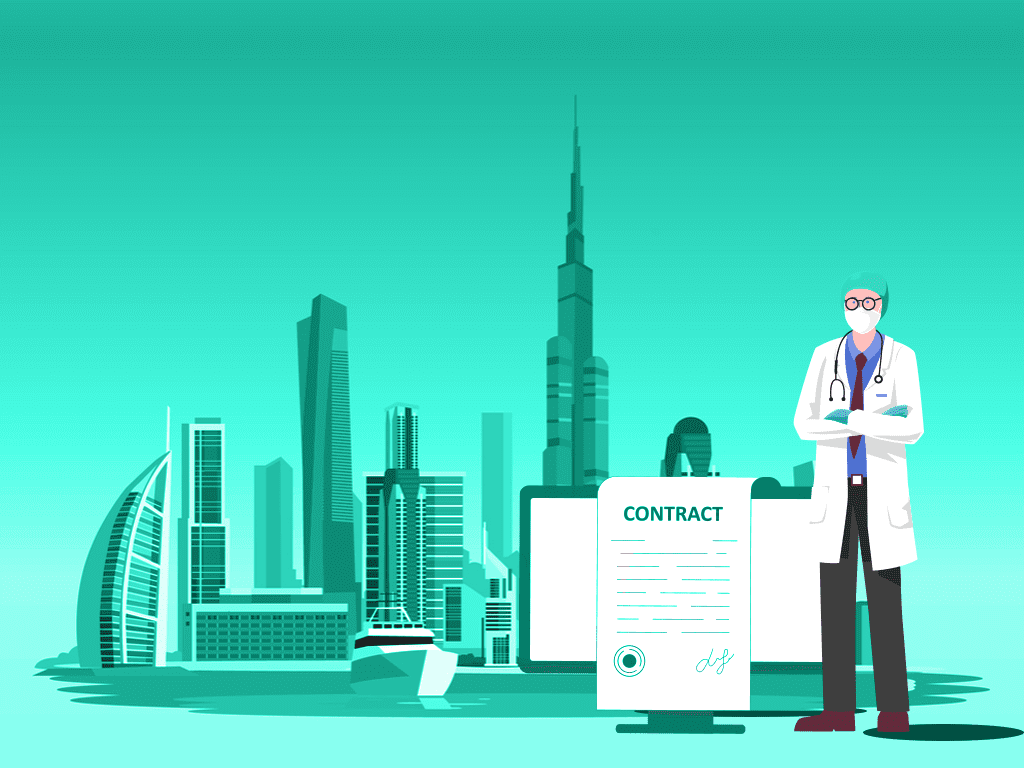
Opportunities for the future
Sustainable growth within Dubai’s competitive healthcare sector is achievable by delivering data driven, patient-centric and result oriented healthcare with the aid of new technologies and innovations.
Opportunities exist in addressing current gaps in areas such as primary care and the management of chronic diseases, such as renal dialysis and diabetes. As the UAE recently announced a new retirement visa scheme, consideration should be given to the health needs of the older population.
As the government’s Emiratisation strategy encourages more citizens to train and work in the healthcare sector, the UAE is still heavily reliant on expat healthcare professionals. The expansion of the ‘Golden Visa’ scheme to all resident doctors will benefit the UAE’s health sector by encouraging medical professionals to remain in the Emirates long term.

Dubai is a fast-paced, highly competitive tourism & business hub and is not suited to everyone!
To find out more about working in this dynamic and growing healthcare sector, contact Allocation Assist
-
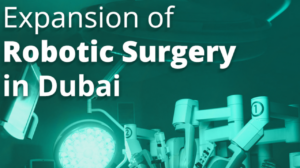
Expansion of Robotic Surgery in Dubai
- BY Emilie
Read Articles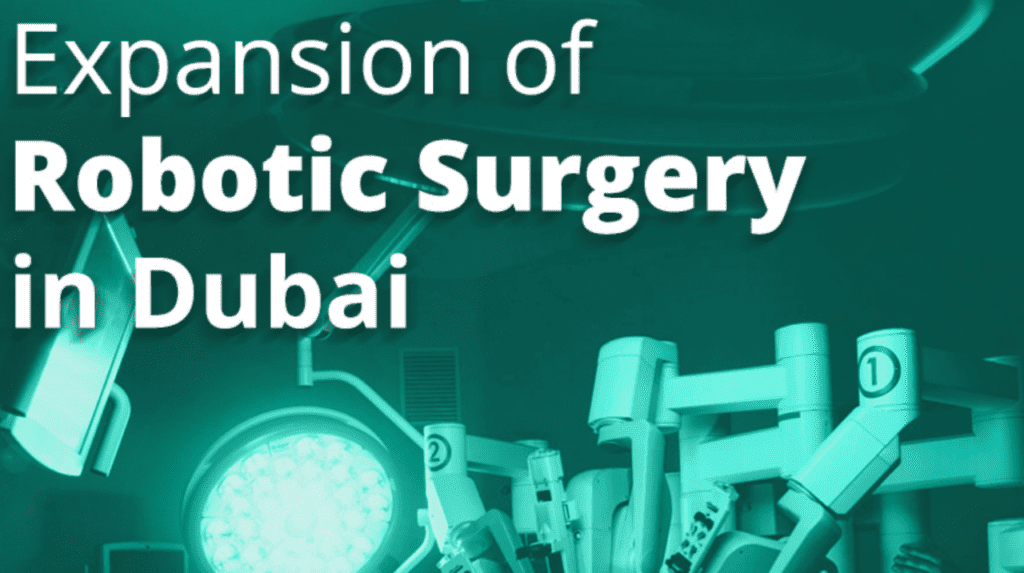
In recent years, there has been significant investment in robotic surgery technology in Dubai and the wider UAE, with increasing opportunities for surgeons trained in robotic surgery techniques.
What is driving the growth in robotic surgery?
Investment in healthcare technology is expanding in line with the UAE’s Vision 2021 and National Agenda, contributing to the goal of building a world-class healthcare system. Increasing capacity and quality in the healthcare sector is highly supported by the UAE’s leadership, as well as continued private investment. Over the last few decades, Dubai has undergone a transformation into a global healthcare and healthtech hub due to a number of health strategies put forward by the Dubai government.
The first robotic surgery in the UAE was a cardiac procedure performed at Al Qassimi Hospital, a government hospital in Sharjah, in June 2014. Since then, other government hospitals in the UAE have started robotic-assisted surgeries.
In the past few years many private hospitals in Dubai have invested heavily in robotic surgery technology. Further investment and growth in robotic surgery is projected, as demand and awareness increases from both residents and medical tourists to Dubai.
What are the benefits for Dubai’s healthcare sector?
When used for carefully selected cases, robotic surgery offers the following benefits: ● Faster recovery time
● Shorter hospital stay
● Reduced pain and discomfort
● Smaller incisions with minimal scarring
● Reduced risk of infection and blood loss
The technology enables procedures to be performed more precisely and accurately, with less complications and faster discharge. Although a significant financial investment is required, robotic-assisted procedures can enable cost-savings over the long term, as hospital stays are reduced with less associated consumables and medication required. This increased efficiency is particularly beneficial with the new DRG system launched by Dubai Health Authority, as the cost of complications and longer hospital stays is now absorbed by the hospital and not the insurer.
Hospitals which have advanced robotic systems in place are able to recruit talented surgeons from all over the world. They are also able to attract patients requiring complex surgeries from both within the region and medical tourists from further afield.
What is the current scope of robotic surgery in Dubai?
There are now several private hospitals in Dubai with facilities for minimally invasive robotic surgery in specialties such as gastrointestinal surgery, urology, gynaecology, thoracic, bariatric surgery and general surgery. The da Vinci Xi (Intuitive Surgical) and Versius (CMR Surgical) are the most popular systems currently used in Dubai.
A plan to set up a robotic surgical training hub for the region, to be based in Dubai, was recently announced.
There are currently opportunities for surgeons trained in robotic surgery in the following specialities:
● Urology
● OBGYN
● General Surgery
● Thoracic Surgery
● Colorectal Surgery
● Bariatric Surgery
-
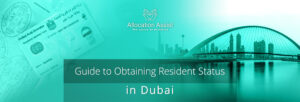
Guide to Obtaining Resident Status in Dubai
- BY Emilie
Read Articles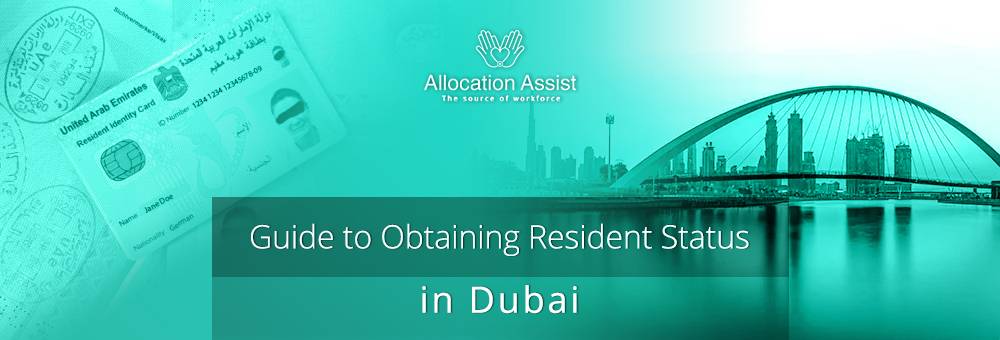
Have you secured a job offer in Dubai, or are you researching relocating to Dubai as a doctor or other healthcare professional?
The process of applying for residency status and sponsoring your family if they are relocating with you can take some time. It helps to know in advance what is required.
Read on to find out more about the process for obtaining:
Medical Professional Licensing
The first step, if you have not done so already, is to obtain your DHA (Dubai Health Authority) licence to work as a medical professional in Dubai. This takes on average 4 to 6 months, or longer in some cases. Therefore, serious candidates are encouraged to apply before securing an employment offer. More information can be found on the DHA website and in this DHA e-booklet.
As the licensing process is complex and exacting, Allocation Assist have an in-house dedicated and experienced licensing team. They can guide you on the precise documentation required, submit and monitor your application, for a smooth and efficient licensing process.
DHA registration is valid for one year, however it is easy and straightforward to renew. The dataflow report, the longest part of the licensing process, can be used for other UAE emirates or Gulf countries, and the verifications will never expire.
Obtaining your Residency Status
Once you have a signed employment contract, the next step is to obtain your residency status. You can only apply for your residency visa once you are in the country. Therefore, if you are relocating to the UAE, your new employer will obtain an Employment Entry Visa for you. This allows the holder to remain in the UAE for 30 days but is extendable twice, while your residency visa is being processed.
Residency status allows you to work in the UAE, open a local bank account, apply for a driving licence and buy a car, obtain a tenancy agreement or purchase a property, sponsor residency for your spouse or dependents and register your children in government or private schools.
Most people stay in a hotel or serviced apartment until obtaining their residency visa. The process usually takes 1 or 2 months.
If you are already in the UAE on another type of visa you will need to apply for a change of visa status, after the entry visa is issued.
The application can be done on the Federal Authority for Identity and Citizenship website, but you will need to visit an authorized typing center, with the Amer logo, to submit your documents.
Documents Required for Residency Visa:
- Copy of passport (which is valid for at least six months)
- Employment Entry Visa
- Copy of attested professional qualification certificates
- Signed employment contract
- Salary certificate
- Health Insurance Card (usually provided by employer)
- Passport size photographs against a white background.
Medical screening, including a blood test (for HIV status) and a chest x-ray (to screen for Tuberculosis) is required when applying for residency.
According to the UAE labor law, visa expenses must be borne by the employer.
Translation and Attestation of documents
Many documents, such as educational, professional, marriage or birth certificates, may need to be attested to confirm the validity of a seal and signature on documents, and may also be required to be translated into Arabic. This can be done for a fee at government centers in the UAE. You may prefer to get documents attested in advance at a UAE embassy in your home country.
Applying for your Emirates ID Card
An Emirates ID smartcard is required for all citizens and residents to access many services from government institutions and regulated private companies.
Once you have applied for your residence visa, you should immediately apply for your Emirates ID card.
This can also be done on the Federal Authority for Identity and Citizenship website. You will need to visit an Emirates ID center, where your biometrics, such as photograph, signature and fingerprints, will be taken.
Your employers HR department will often follow up on your application. You will receive your residence visa stamped in your passport. Your Emirates ID will usually be available approximately 10 days after you receive your residency visa. A new e-Emirates ID, allows you to access services before the physical card is available.
Obtaining residency status for your spouse and children
If you are relocating to Dubai with your family, you will need to apply for their residency status, as their sponsor, after you receive your residency visa and Emirates ID.
If they are travelling with you, they can initially enter the country on a tourist visa (or visa on arrival) and then do a ‘change of status’ once their residency visa is approved. Alternatively, you may arrive first and complete the formalities and arrange accommodation for the family in advance.
The process for applying for their residency visa and Emirates ID is almost the same as above, with extra documents required.
Required documents for sponsoring spouse and children:
-
-
- Application form (online application or through a registered typing office)
- Passport copies of spouse and children
- Current visa copies of family members (if inside the UAE)
- Your original passport, residency visa and Emirates ID
- Passport size photographs of each family member
- Legalized, attested marriage certificate (translated into Arabic)
- Attested birth certificate of children (translated into Arabic)
- Medical clearance certificate (blood test and chest x-ray) for spouse and children above 18
- Copy of your employment contract
- Salary certificate from your employer
- Last 3 months bank statements
- Original registered tenancy contract
- Latest utility bill
-
(See earlier note on translation and attestation of documents)
You will need to pay the relevant fees to sponsor your family members. Depending on the nature of your contract, some employers may reimburse these expenses.
This UAE government website link contains more detailed information on sponsoring family residence. Also see (AMER 24/7)

Dubai is a fast-paced, highly competitive tourism & business hub and is not suited to everyone!
To find out more about working in this dynamic and growing healthcare sector, contact Allocation Assist
-
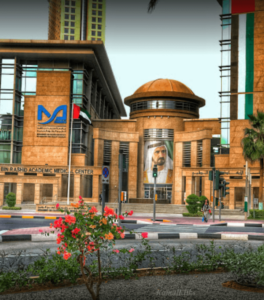
What is MBRU?
- BY Emilie
Read ArticlesWhat is MBRU?
Dubai Healthcare City’s first medical university, MBRU, is advancing its vision to become an internationally recognized location of choice for quality healthcare and an integrated centre of excellence for clinical and wellness services, medical education and research.
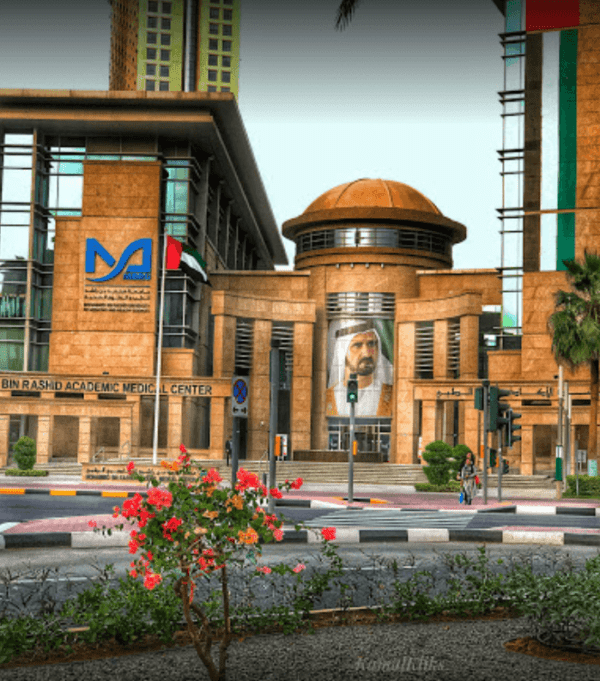
Mohammed Bin Rashid University of Medicine and Health Sciences (MBRU), founded in 2014, is named after His Highness Sheikh Mohammed Bin Rashid Al Maktoum, Vice President and Prime Minister of the UAE, and Ruler of Dubai. The University embraces His Highness’ principles of respect, integrity, innovation and advancement for the benefit of humanity.
This blog highlights the factors that are establishing MBRU as a global hub for innovative and integrated healthcare education and research.
Medical Education
The University offers undergraduate and postgraduate degrees through its three colleges:
The College of Medicine offers the Bachelor of Medicine Bachelor of Surgery (MBBS) and a Master of Science in Biomedical Sciences.
The Hamdan Bin Mohammed College of Dental Medicine offers a of range specialist postgraduate MSc courses, as well as endodontic residency and dental internship programmes.
The College of Nursing and Midwifery (opened January 2020) offers a range of postgraduate courses of study, including MSc programmes in Cardiovascular and Paediatric nursing, alongside an integrated and aligned programme of research and scholarly activities.
The Digital Learning and Innovation service at MBRU helps to align the university’s strategic objectives for education and research by incorporating innovative approaches to learning design and technology-enhanced learning (TEL).
The largest medical simulation center in the Dubai, Khalaf Ahmed Al Habtoor Medical Simulation Center is a fully accredited medical education and training facility, equipped with hospital-grade equipment to support healthcare professionals by providing realistic hospital environments and a clinical skills lab, to better educate students and the wider medical community. The Simulation Center facilities are available for hire by healthcare professionals and educators.
The Al Maktoum Medical Library plays a vital role in supporting MBRU students, faculty, and the wider medical community, by providing access to high-quality and authoritative information resources to promote the very best in medical education, research, teaching, and patient care.
Partnerships and affiliations with hospitals, academic and research institutions both within and outside the UAE enhance the quality of MBRU’s educational programmes, widening the university network and expanding the university outreach.
Queen’s University Belfast is MBRU’s international academic partner.
Al Jalila Children’s Hospital has partnered with MBRU to offer a Paediatric Residency Programme and a Child and Adolescent Psychiatry Fellowship Programme.
Partnerships with Mediclinic Middle East and Dubai Dental Hospital provide clinical training for medical and dental students.
In alignment with the UAE’s vision to expand and support innovation, research, science and technology, MBRU aspires to become a leading research-focused medical academic institution and to create an innovative and enriching research environment that will support the advancement of healthcare in the UAE and globally.
Research projects are currently underway at MBRU in the areas of cardiometabolic diseases including diabetes, cancer, mental health, neurodevelopmental disorders, and respiratory and infectious diseases.
A joint clinical trial in partnership with Dubai Health Authority (DHA) and Breathonix Pte Ltd is assessing the accuracy of an easy-to-use breath test to detect COVID-19 within one minute.
The first-of-its-kind in the UAE, the Center for Genomic Discovery is bridging the knowledge gap in understanding of genetic disease, in collaboration with Al Jalila Children’s Specialty Hospital, and Al Jalila Genomics Center.
The first whole genomic sequencing in UAE, was achieved in December 2018.
The pioneering Design Lab, launched in February 2019, is nurturing and fostering innovative healthcare solutions for the region and the world.
Located within the main building of the College of Medicine, facilities available in the Design Lab include a 3D printer, Virtual Reality (1x HTC Vive Pro, 2x Oculus Quest), hand-tracking (Magic Leap) and micro-computers (Raspberry Pi, Arduino, Minnowboard).
MBRU Organ Transplant programme
Since its launch in 2016, the MBRU Organ Transplant programme – a collaboration with Mediclinic Middle East and Al Jalila Children’s Specialty Hospital – has carried out 19 successful transplant operations up to January 2021, including living donor kidney transplants.
-
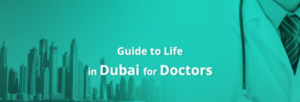
Guide to Life in Dubai for Doctors
- BY Emilie
Read Articles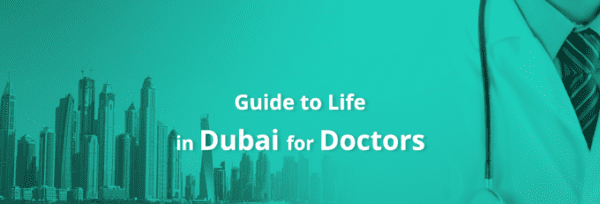
Are you a doctor or other health professional considering coming to work in Dubai? Do you have questions about work and life in Dubai?
If you are thinking of relocating with your family, you may have many concerns about how they will adapt to life in a new country and culture.
Family Life
When we were relocating, my main concerns were for the children. It was not our first time living outside the UK, but Dubai was a relatively unknown place, and I was unsure how they would settle. I need not have worried! The kids love it here and now don’t want to move back to the UK. We have a good balance between work and family life.
Education
There are many excellent international schools, including a wide choice of British Curriculum schools. Our children love their school and felt part of the school community from their first week. They benefit from having friends from all over the world.
Work life
For doctors and other health professionals, hours of work and on-call duties depend on your speciality and place of work. Sunday is a working day, but Friday is the main day off. You may be required to work some Saturdays, depending on your contract.
Salary and Cost of Living
One of the great benefits of working in the UAE is the tax-free salary. Depending on the package of salary and benefits you are offered, there is a greater potential, compared to the UK. Many employers offer allowances for accommodation and children’s education. Medical insurance cover is standard.
How much you can save will depend upon your living costs. Rents vary according to location and area. In the centre of Dubai rents are expensive. Moving further out from the city centre will reduce accommodation costs but may increase your commute time. Things like petrol and eating out are cheaper than in the UK but buying imported products can be more expensive. Employing someone to help with housework or childcare is also more affordable than in the UK.
Community and leisure time
Dubai is extremely international. Approximately 85% of the population are expatriates from over 200 nationalities. People are generally friendly, used to mixing with others from different cultures and welcoming to new arrivals. There are many societies and clubs where you can make new friends.
There are a wide range of activities available, according to your budget. There is an endless array of restaurants with cuisines from all over the world. The more touristy attractions can be on the expensive side, but there are plenty of beaches, parks, and inexpensive or free museums and galleries. You can also take the opportunity to get out into the desert or visit a nature reserve.
Language, Culture and Religion
The UAE is an Arabic speaking country, but English is the main language used between people of different nationalities. All street signs are in both Arabic and English so, you don’t need to learn Arabic to get around. All school children do Arabic lessons and UAE Social Studies at school. Learning about the local language and culture is helpful for adults too, but it is not compulsory.
The UAE is an Islamic country but people from all major world faiths reside here. There is freedom to practice your own religion, with respect for each other. We do seek to be sensitive to local culture and customs. If you are visiting malls, offices or religious sites it is advisable to wear clothing which covers your knees and shoulders, but otherwise in tourist areas and beaches the dress code is more relaxed.
The legal drinking age is 21 years, and the law is in the process of changing so that you will no longer need a licence to purchase alcohol. However, in respect of the local culture, drinking is permitted in licenced venues or at home only and there may be penalties for drunken or inappropriate behaviour. Also, there is zero tolerance for drink driving, so get a taxi if you have had a drink.
Weather
You may be concerned about the heat in Dubai. Personally, I don’t like the cold and am happy to live in a place where it is sunny almost every day! The hotter months are from April to September, with temperatures between 30 and 45 C. But, unlike in the UK, there is air-conditioning almost everywhere so you don’t feel it, unless you are outside during the day. From around October to March the weather is great and we make the most of opportunities to get outside, to the beach, parks or nature reserves. I think of it as the opposite of the UK – there you stay inside in winter and go out in summer, here it is the reverse.
Safety
Dubai is one of the safest cities in the world with a low crime rate. As a woman, I have always felt safe and respected. We have been extremely impressed by the government’s response to the COVID-19 pandemic. Safety restrictions were put in place early and sensibly. The vaccine roll-out has also been fast and well-organised.
Travel
Public transport is limited and the quickest way to get around is by car or taxi. The Dubai Metro is great if you live near a metro station and there are plans to expand it to link other areas of the city. Driving is on the opposite side of the road to the UK and there are many multi-lane highways. The roads are good, but you need to watch out for some drivers who think they are competing in a race. I drive carefully and let them pass. Traffic can get busy during the rush hours. There are a variety of taxi apps which are very convenient.
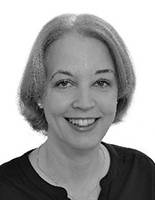
Vivienne Mendonca
I hope this guide has been helpful. If you have any further questions, please leave a comment and I will do my best to answer.
Vivienne Mendonca is a British dentist with a Master’s in Public Health, based in Dubai. With her family, she has previously lived in the UK, India and the USA. She enjoys using her knowledge and experience to write on healthcare and other topics.
